Women’s lacrosse defender Alex Gambacorta entered the season with 49 appearances and 21 starts. Yet the biggest difference she has made is far from Valley Fields’ seasonal dome.
Gambacorta, a senior double-major in social welfare and justice and writing-intensive English, launched Student Health Allies and Peer Educators (SHAPE), a mental health advocacy group for student-athletes with the help of her academic advisor, Maureen Lewis.
Gambacorta first became passionate about mental health and self-care in high school. She knew a few people who struggled with mental illness and saw a need to have more conversations about it.
However, Gambacorta didn’t grasp the daily struggles of balancing a Division I sport and full credit load until she arrived at Marquette.
“Being on an athletics team is sort of hard, because there’s a mentality of faking it until you make it and not showing weakness,” Gambacorta said.
After seeing teammates and friends struggle, Gambacorta wanted to remove the stigma surrounding mental health.
She knew it wasn’t going to be easy.
“It was really hard to talk about because, it was being vulnerable and sharing your emotions with people,” Gambacorta said. “And that’s not always seen as acceptable.”
Lewis called Gambacorta “fearless” in confronting the stigma and getting the conversation started.
“(Gambacorta) is just … like, ‘We have to figure this out, we have to talk about this more (and) we have to put this front and center,'” Lewis said. “She’s like an energizer bunny behind it.”
Gambacorta knew she wanted to make an impact off the lacrosse field for her senior season. Lewis and Gambacorta worked on the plan for SHAPE all of last summer and officially launched the organization at the beginning of the fall semester.
Since its launch, SHAPE has made an instant impact among her fellow student-athletes. Twenty-three members representing six sports have joined.
SHAPE has added awareness of the stigma through the four-person pushup challenge. The challenge addresses the statistic that one in four people suffer from a mental health illness.
It was so successful that the group is looking to implement it again later this spring by partnering with university mental health group Active Minds to reach more people.
Sparking awareness around the stigma has been a focal point of the organization, making it easier for fluid conversations to take place.
“I think when it’s not visible when people don’t know that there’s (sic) people that care about this necessarily, then it’s harder (because it is) like, ‘Oh, no one else feels like I feel,'” Gambacorta said.
Lewis said conversations among student-athletes were already happening in the locker room because they are constantly with one another.. A majority of students are resistant to seeking help because they think they can handle it by themselves. “I regularly hear sayings such as, ‘I got it, I don’t need you, I’m good, I’ve got it, I’ll let you know if I need you,” Lewis said.
As a second-semester senior, Gambacorta is more motivated than ever to make her mark, which she believes she can accomplish by showing up, being patient and listening.
“It’s not answering anything back,” Gambacorta said. “It’s just sitting and listening and hearing someone’s side (of the story).”

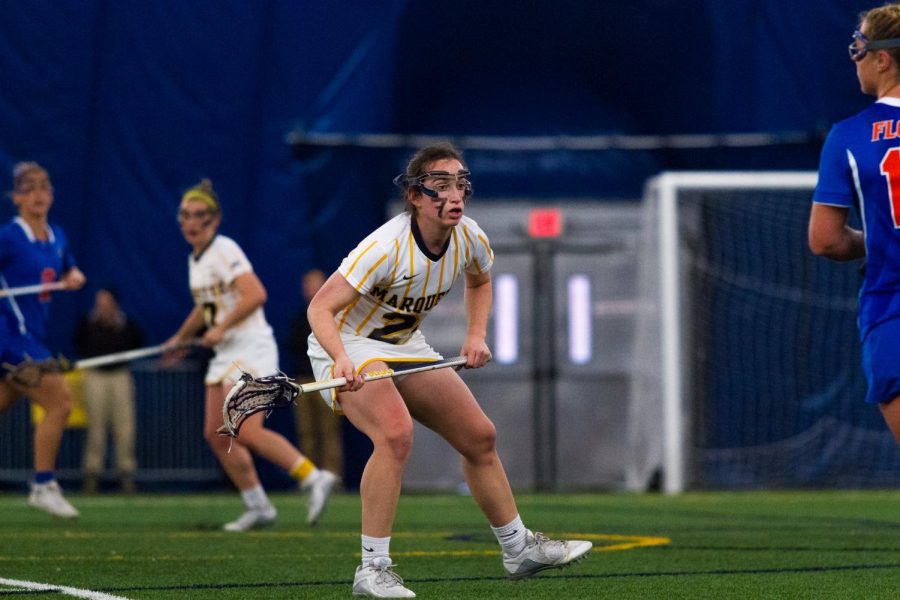
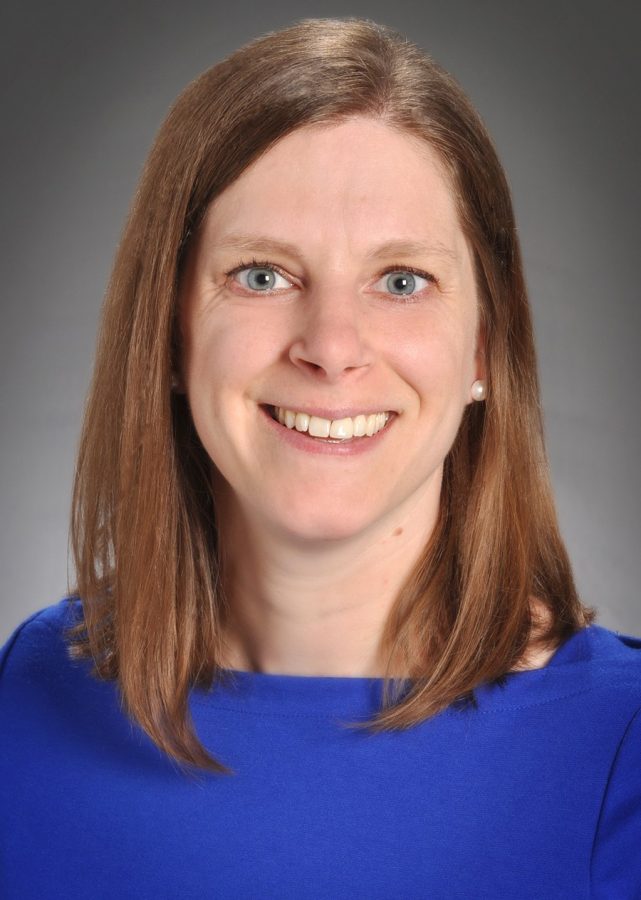
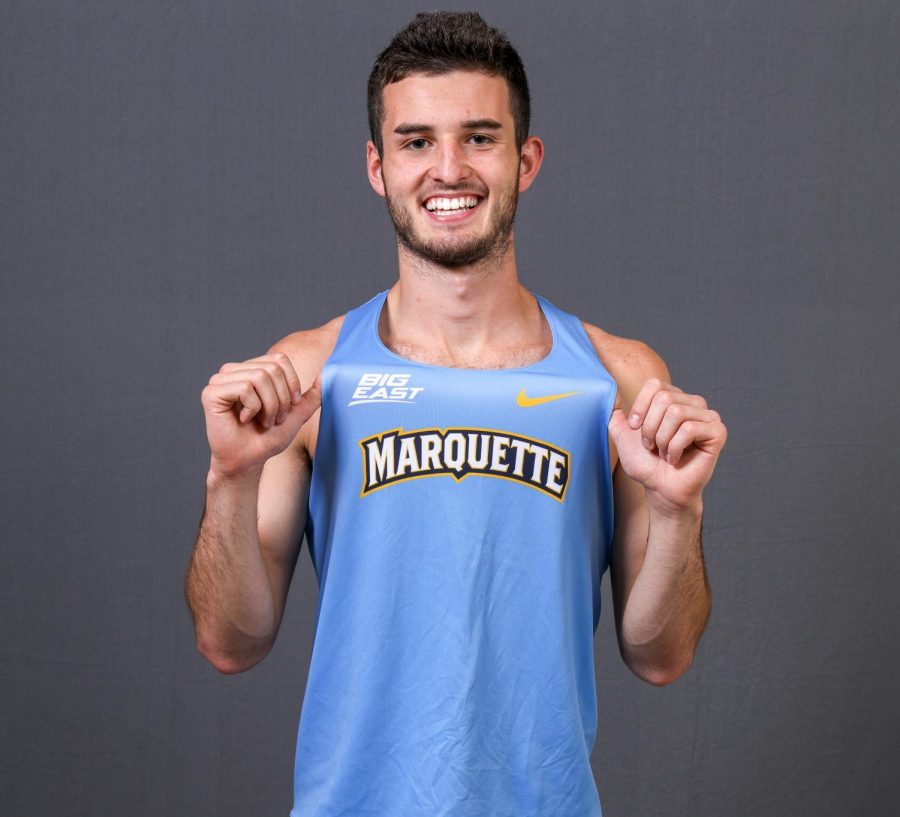
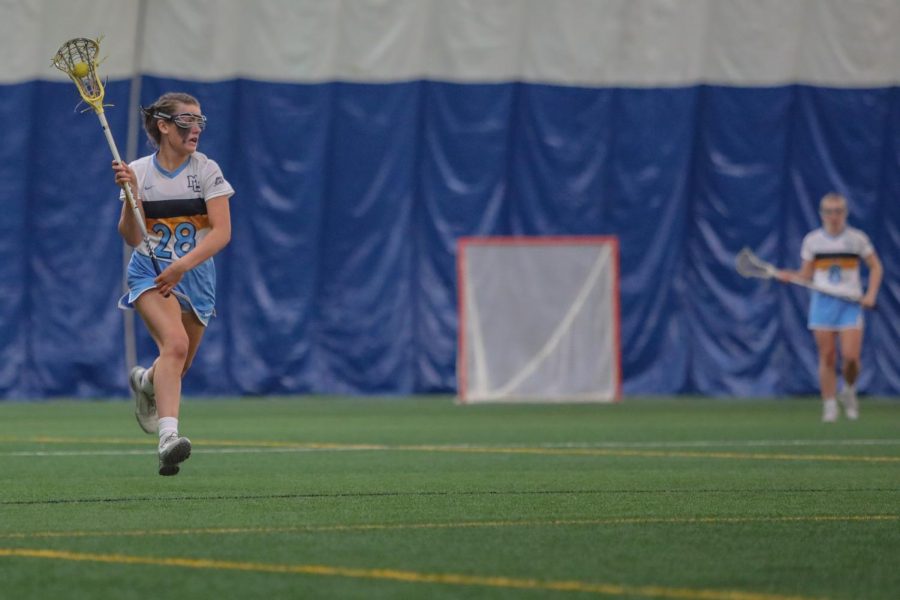
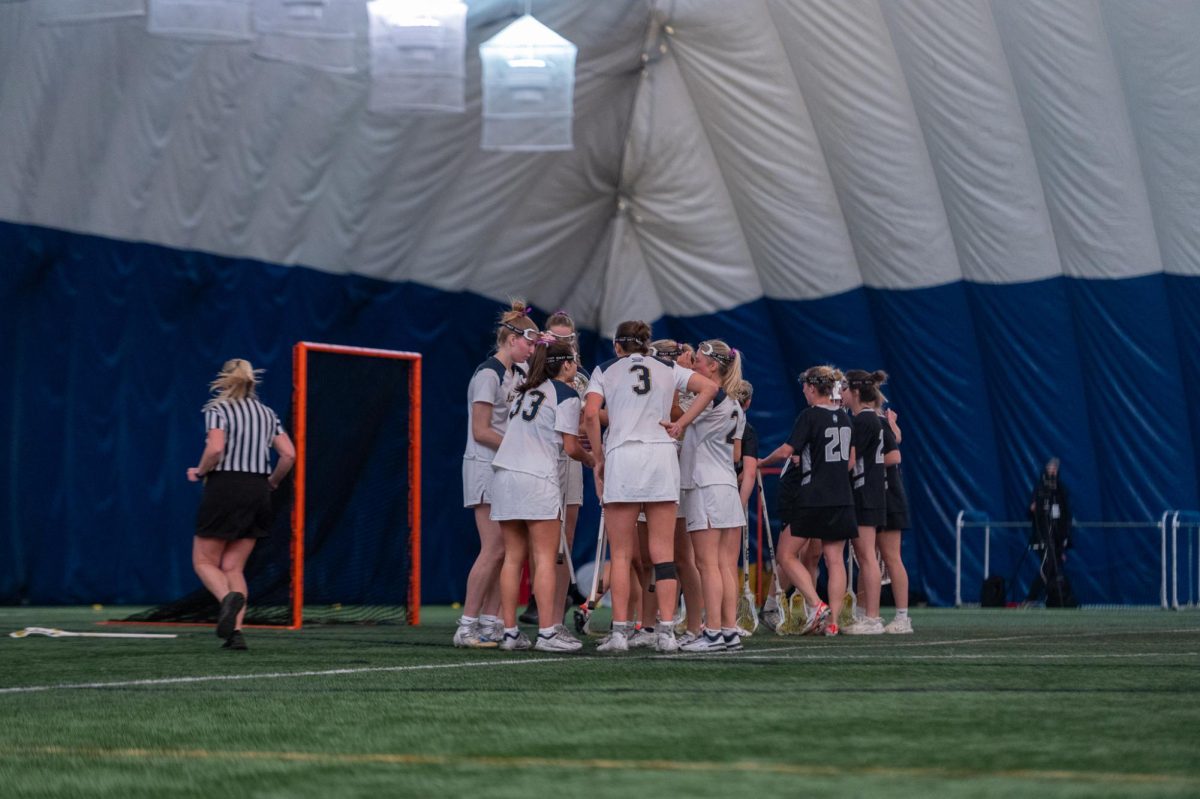
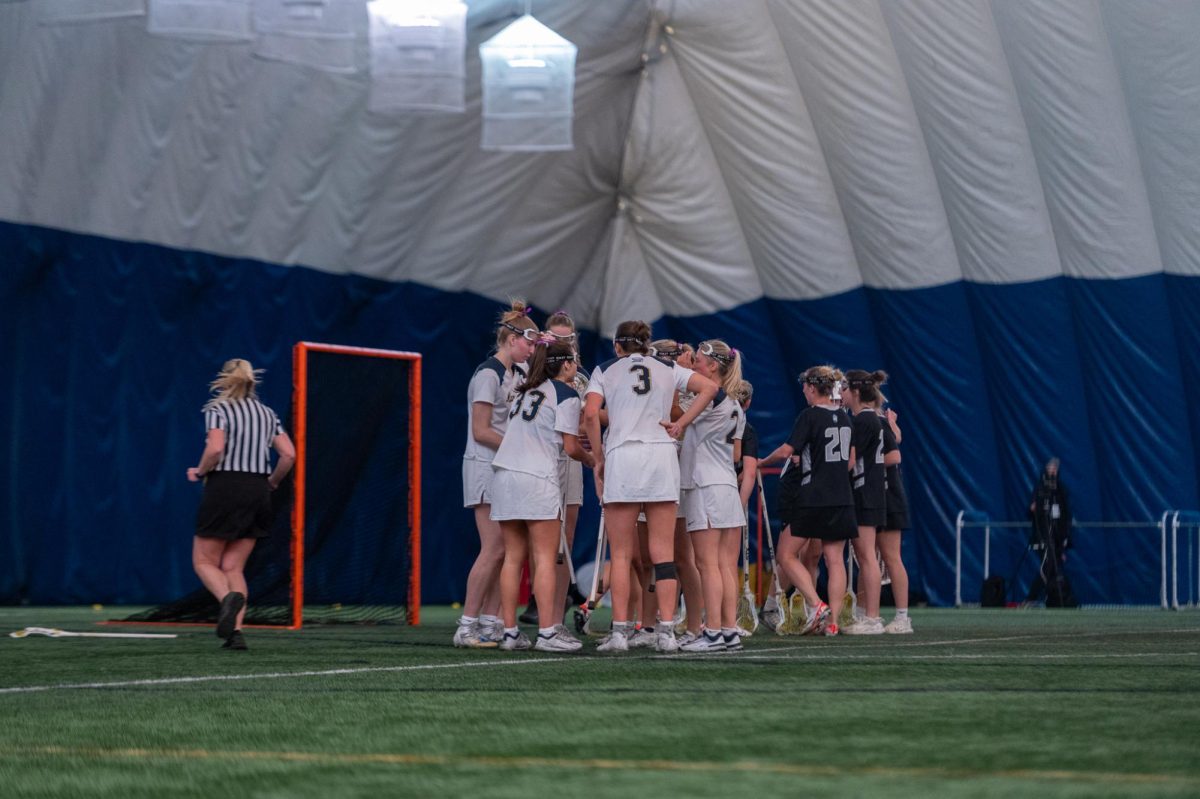
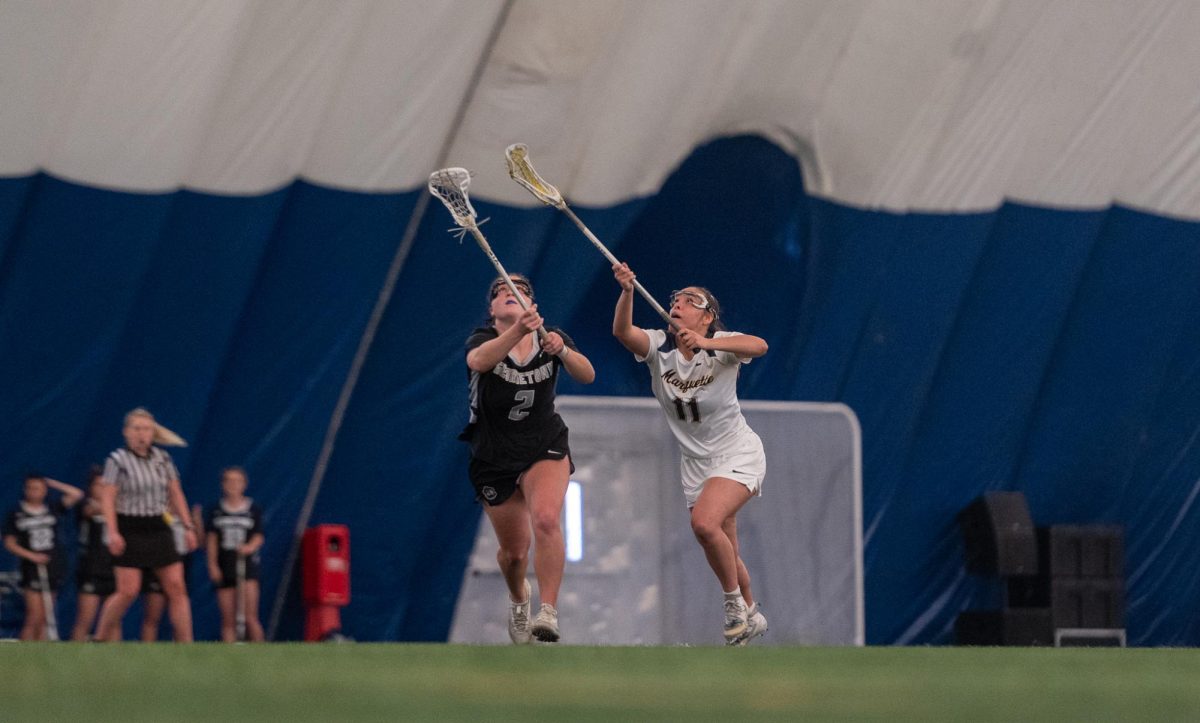
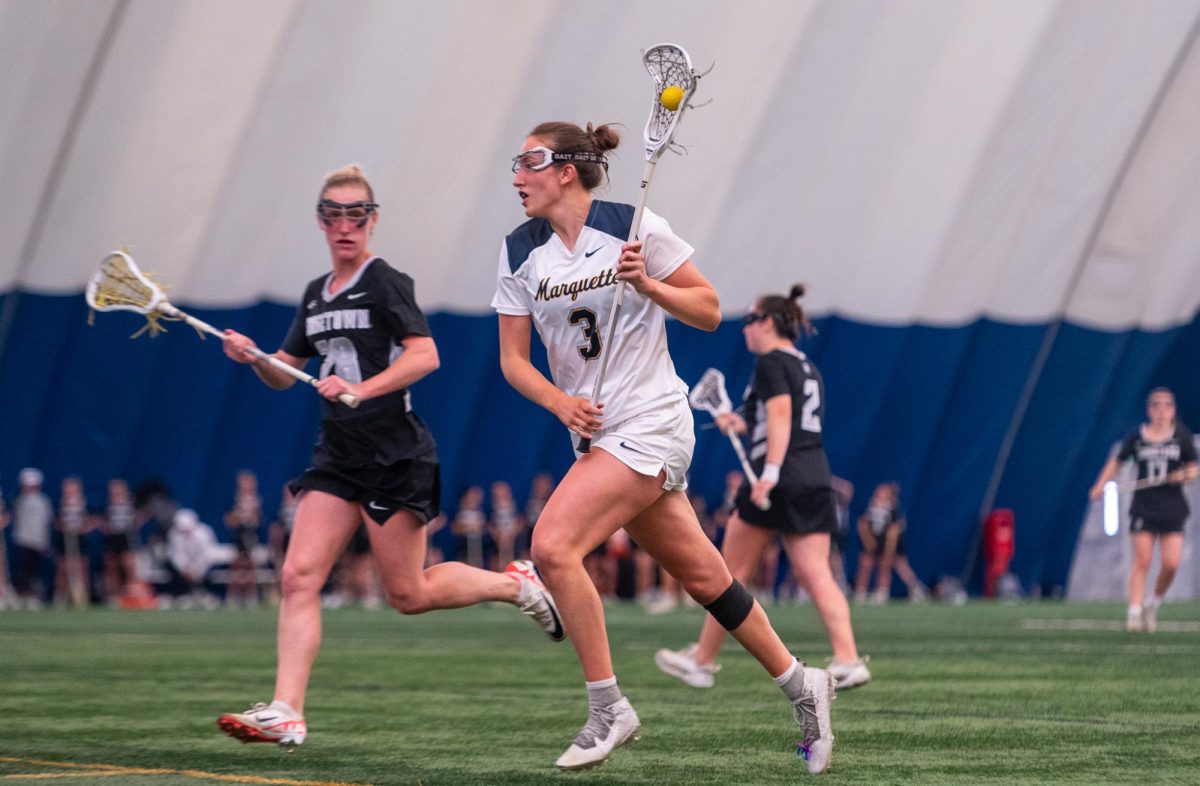
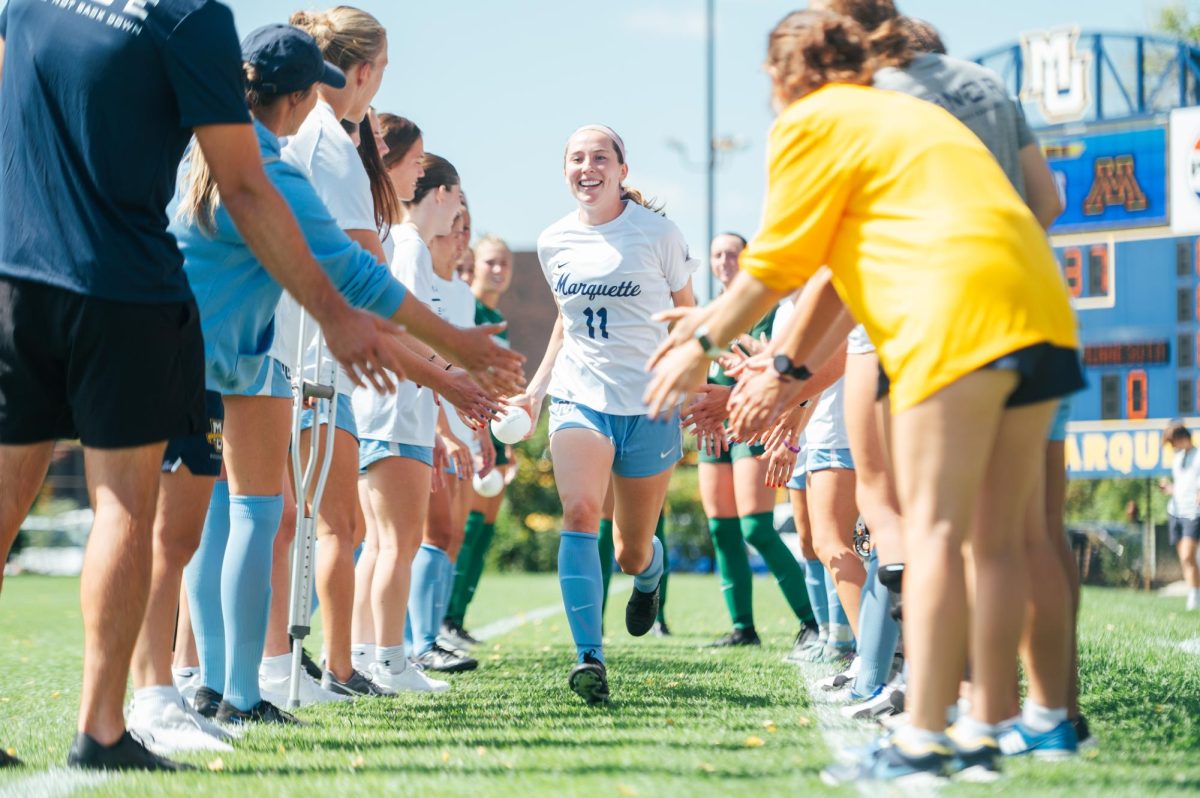

Harold A Maio • Feb 20, 2018 at 4:46 am
—–mental health stigma??
For a great many generations we wee taught to repeat rape/stigma.
We stopped.
We are teaching a new version. Will we do it again for a great many generations?
YOU at Marquette need not.